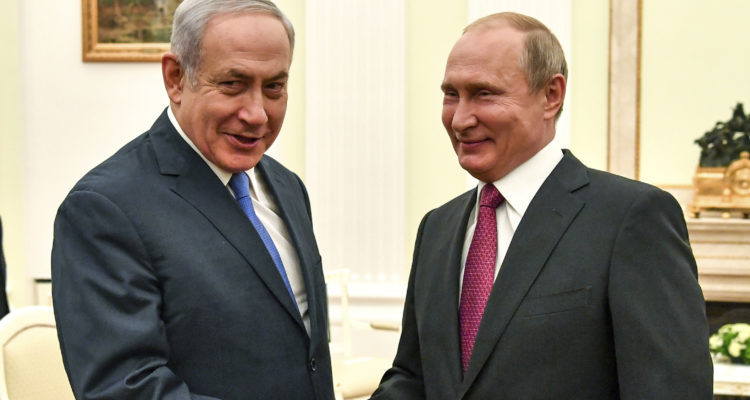Russian Deputy Foreign Minister Sergei Ryabkov stated that Israel’s security is one of Moscow’s “top priorities” in the Middle East.
By Daniel Krygier, World Israel News
Russia recently denied that Iran is an ally. In addition, the Russian Deputy Foreign Minister Sergei Ryabkov stated that Israel’s security is one of Moscow’s “top priorities” in the Middle East. This as Iran directs unprecedented criticism towards Russia for not activating the Russian S-300 anti-missile system against the Israeli Air Force.
What does the growing tensions between Iran and Russia in Syria mean for Israel?
In September 2018, Russian-Israeli relations took a nose dive after a Russian military plane was hit during an Israeli air strike. While the Russian plane was downed by Syria, Moscow’s Defense Ministry blamed Israel. Over U.S. and Israeli opposition, Moscow delivered its S-300 anti-missile system to Syria a month later.
However, Moscow hasn’t made its S-300s an operational part of Syria’s air defenses and hasn’t been in a hurry to transfer their control to Syria’s military. March 2019 is the date set for Syrian personnel to operate the S-300 system. Even then it will be supervised by Russian forces.
Since then, Russian President Putin has signaled that he wishes to restore efficient and closer relations with Israel.
For different reasons, Russia and Iran back the Syrian regime led by President Bashar al-Assad. The fight against ISIS temporarily united the rival powers Russia and Iran. However, since the Islamist group has been largely defeated, the gulf between Moscow’s and Tehran’s interests have increasingly become unbridgeable.
Simply put, Russia seeks stability in Syria in order to properly defend its strategic military bases. By contrast, Iran seeks to build a Shiite military imperial corridor between Tehran and Beirut at the Mediterranean. Since this constitutes a direct military threat against the Jewish state, Israel has increasingly sent its air force to hit Iranian and Hezbollah military targets in Syria. As a result, Syria’s stability is in jeopardy, which greatly displeases Russia.
Following Israel’s large recent strike on Iranian military targets in Syria, Tehran publicaly vented its growing frustration with Moscow. The chairman of the Iranian Parliament’s National Security and Foreign Policy Commission, did not mince words in his criticism of Russia: “ If the Russian air defense worked properly, Israel would not be able to easily launch strikes over Syria.”
The senior Iranian lawmaker even insinuated that there is a tacit cooperation between Russia and Israel: “There seems to be some form of coordination between the Zionist regime’s strikes and Russia’s air defense system in Syria.”
In addition to Syria, Iran wants a Russian defense shield to also cover exposed Hezbollah targets in Lebanon. While the survival of the Assad regime serves Russian interests, an Iranian presence in Syria does not. Moscow and Jerusalem are hardly allies but there is no contradiction between Russia’s and Israel’s strategic interests in Syria. Both seek stability in Syria.
Israel does not feel threatened by a Russian military presence in Syria. For its part, Moscow increasingly sees Tehran as a troublemaker in the region that undermines Russian interests by picking a fight with Israel.
This presents Israel with a unique opportunity to increase the convergence of Russian and Israeli interests in Syria.





